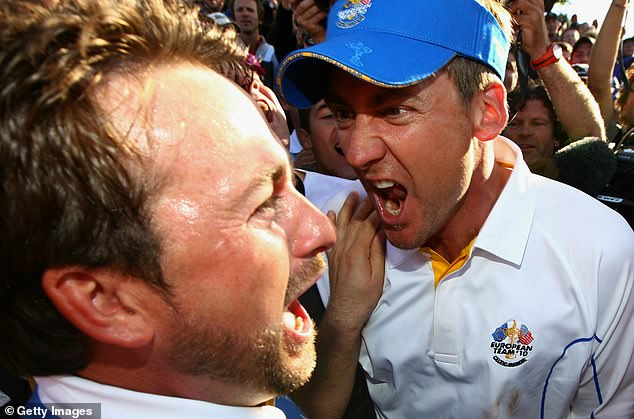The Ryder Cup: Overcoming the Odds in Away Matches
Winning away games in the Ryder Cup—one of golf’s most illustrious events—is a daunting challenge, as Tony Jacklin can attest. A pivotal figure in Ryder Cup history, Jacklin was not only part of the European team that achieved success on US soil but also witnessed agonizing defeats that have left their mark on his memory. Reflecting on past encounters, particularly the notorious “War on the Shore” in 1991, Jacklin provides critical insights into the complexities of winning in hostile territory.
The Tumultuous 1991 Ryder Cup
The 1991 Ryder Cup, held at Kiawah Island, South Carolina, is etched in history for its fierce competition and controversial moments. The final match of the Sunday singles saw Hale Irwin of Team USA face off against Europe’s Bernhard Langer, with the stakes at an all-time high. Tied on the 18th hole, Irwin’s ball appeared to take an inexplicably fortunate bounce, provoking debate about whether it was aided by a spectator. Jacklin believes this incident encapsulates the tumult and emotional weight of Ryder Cup matches, especially when played away from home.
Historical Context of Away Wins
Examining the Ryder Cup’s history reveals just how rare away victories have been for European teams. Since the inception of the modern Team Europe in 1979, only six out of 22 Cups have been won on American soil, and only twice in the last 30 years. This stark statistic underscores the uphill battle faced by European players when contesting against a US squad that enjoys not only home advantage but also fervent local support.
The Challenge of Home Advantage
Luke Donald, captain for Europe at the forthcoming Ryder Cup, recognizes the historical significance of leading the team into what is known to be a lion’s den. With only four European captains having succeeded on US soil—Jacklin, Bernard Gallacher, Bernhard Langer, and José María Olazábal—Donald is acutely aware of the psychological and environmental challenges that await. Home support undeniably acts as a "12th man," fostering an atmosphere that can intimidate opposing players, oftentimes unfairly.
Transforming Adversity into Advantage
For the European teams that have triumphed in the past, they capitalized on unique strategies to overcome the pressures. Captains noted that foundational aspects like teamwork, camaraderie, and player morale are equally important as technical skills. Langer’s approach in 2004 revolved around warming up to the crowd, fostering goodwill, and making connections with American fans. By increasing interaction during practice rounds and showing appreciation for local support, he turned potential animosity into an advantage, showcasing the power of engagement.
The Role of Fan Behavior
The heightened emotion among US fans—often resulting in booing, heckling, and boisterous behavior—emphasizes the unique challenge of competing in the Ryder Cup. Instances such as the mistreatment of Colin Montgomerie at Brookline in 1999 and the abuse directed at Shane Lowry’s wife in 2021 highlight the extremes of fan engagement. In contrast, European fans can also exhibit poor behavior, but the most intense and aggressive moments have occurred in the United States.
Innovative Strategies from Modern Captains
Donald has taken the nuances of home support into account, employing unique psychological tactics to prepare his team. Hiring actors to simulate heckling during practice rounds and providing virtual reality experiences that simulate fan abuse have been some of his offbeat but practical methods to prepare the team mentally. Such innovative strategies aim to desensitize players to the pressures they will face on the course, allowing them to focus solely on their game.
Learning from Past Champions
Past successful Ryder Cup captains have shown that while strategy is essential, the linchpin of success lies in understanding the players. For instance, Langer placed importance on individual relationships to foster teamwork. By being aware of players’ personalities—like his dynamic with Darren Clarke—he tailored approaches that not only united the team but also played to individual strengths, instrumental in close matches where every stroke counts.
Navigating Emotional Waters
Jacklin’s leadership during his captaincy in the 1980s caters to the emotional side of sportsmanship. Acknowledging that players’ self-esteem is vital, he revolutionized the Ryder Cup experience, ensuring players felt valued and competitive. Self-esteem and feeling special were prioritized, forming a supportive environment conducive to performance. In an event as significant as the Ryder Cup, morale literally plays a substantial role in achieving success.
Unraveling the Magic of Past Victories
Reflecting on past successes, Jacklin characterizes them as the fruits of a collective effort rather than individual brilliance. With a mix of talent, resilience, and fortunate moments influencing outcomes, the Ryder Cup encapsulates the unpredictable nature of sports. The mantra, “If you win, you’re a genius; if you lose, you’re a schmuck,” resonates deeply within the community and aptly sums up the volatility of competitive sports.
Conclusion
As the Ryder Cup approaches, a fresh chapter in this storied competition will unfold at Bethpage Black. With the weight of history, intense rivalries, and the unpredictability of sport hanging in the balance, this year’s event promises to be an intoxicating blend of skill, strategy, and human emotion. The ensuing narratives—whether tales of triumph or agony—will further enrich the captivating legacy of the Ryder Cup, while the lessons learned from those who have ventured before serve as a guiding light for future competitors.


